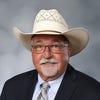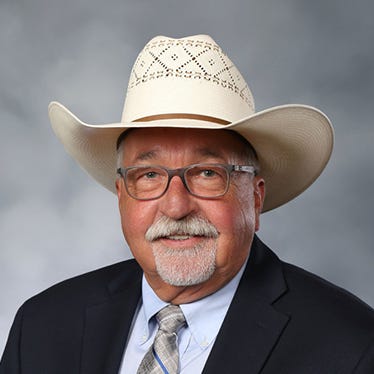July 12, 2018

I’m beginning to get worried about my wife’s eyesight — or should I say, lack of eyesight.
About a month ago, Judy was on her way to the lower barn to feed a bottle to her baby calf (the result of a twin birth), when I heard her yelling for me. After walking down to meet her, she pointed to something about 50 feet from us and said, “There’s a dead coyote lying over there.”
Well, it was something dead, but it wasn’t a coyote. It was a 300-pound calf.
“Really?” I asked. “You can’t see well enough to tell the difference between a coyote and a calf?” Luckily for me, she didn’t answer.
About a week after that incident, we went to a neighbor’s place with a U-pick berry farm, since we needed to replenish the freezer with a couple of gallons of delicious blackberries. The manager directed us to the field and assigned us to Row 7.
Usually, we separate by 20 feet or so and pick until we reach the area where the other one started, and then skip ahead. But right at the beginning, I noticed Judy was missing some very obvious bunches of ripe berries, so I simply started following her.
When we both finished filling our 1-gallon buckets at the same time, side by side, she asked, “How can your bucket be full when you were picking behind me?”
This time, I didn’t answer.
And an anvil, too
The topper, however, came last week when a strong windstorm came through late one afternoon. We lost power, and had been without it for two hours, when I decided we should probably pull out the PTO generator and hook it up to provide electricity through the night. The strength of the storm, coupled with news reports, led me to believe it might be morning before service was restored.
I asked Judy if she would help me roll the generator out of the shop so I could attach it to the tractor and pull it up to the meter pole. She was happy to help, and I instructed her to push from the back of the two-wheeled device while I held up the tongue and pulled. There was no problem until she had pushed about 5 feet; then I heard her yell, followed by a couple of minutes of ranting, using words that I choose not to print. She had walked directly into an old, solid-iron anvil that I had used to prop up the tongue of the generator.
Once her pain had subsided, she asked, in no pleasant manner, “Why didn’t you tell me that anvil was there?”
Wanting to say, “Because I thought you would see it,” I, instead, answered: “I’m so sorry. I should have warned you.”
Visiting with an old friend after that, I relayed my concerns about my wife’s seemingly failing vision. “Oh, Jerry, I wouldn’t worry too much. Judy has been blind for the past 35 years.”
Surprised and alarmed, I asked, “What are you talking about?”
“She married you.”
Crownover writes from Missouri.
About the Author(s)
You May Also Like






